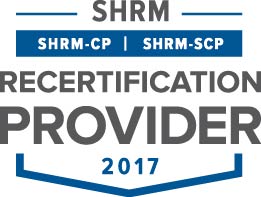
Maybe you just can’t see eye to eye on any issue with this individual. Or, there is this person that drives you up a wall. You find the disgusting habit of this person revolting.
There may also be the pompous and over-bearing one; the sneak or the news carrier.
Many of us experience painful encounters. Depending on the frequency of the negative experiences and their emotional impact, we may label the offender a difficult person.
A different angle
I want to share a different perspective on the issue of dealing with difficult people.
My approach starts with an editing exercise that makes a huge difference.
Change the subject as follows: Dealing With Difficult Persons Situations
Learning to separate the behaviour (action) from the person doing it is a very important step in being able to promote better relationships.
An example might help to show the direction of my thoughts:
One of your less favoured colleagues makes a point during your presentation. You get very upset at what you see as an attempt to put you down. She is always negative and fighting against me!
On another occasion, your best friend interrupts your presentation to offer what you quickly rationalize as an embellishment of your ideas.
In this scenario your response is coloured by your relationship with the parties. You have packaged the behaviour in the view that you hold of each individual. It could well be that if the colleague had said what your friend shared you would still have been upset.
Key take away:
We can make a dramatic advancement in our inter-personal relationships if we constantly train ourselves to view actions independently of their source. Separate the behaviour from the person.
What that means in our example is that I ought to put myself in the position of being able to??objectively??listen to comments. That gives me the option to choose how I respond. When my response is dictated by how I feel about others, I give up the right to choose. I become trapped in knee-jerk reactions that restrict my options.
Consider this:
If we label someone as a difficult person, we are actually sub-consciously creating an environment in which we only have negative interactions with them. We expect the worst and not surprisingly, the self-fulfilling prophecy comes to fruition.
Test drive the alternative:
1. Banish the thought of difficult people. Think only of difficult situations.
2. Take the time to identify what actions (behaviour) of the person you find upsetting.
3. Reflect on why the behaviour upsets you.
4. Carefully seek to recall whether you have been exposed to the behaviour from anyone else.
5. Spare no effort to see if the behaviour is a part of your make-up that you have fought to correct.
6. Remember, putting labels on others places limits on your ability to relate to them with flexibility and an open mind.
7. Start with a clean sheet with respect to incidents. That enables the parties to deal with this situation and not to cloud the issue with matters that are not directly relevant to this
Trevor E S Smith is a Behaviour Modification Coach with the Success with People Academy which is recognized by the Society for Human Resource Management (SHRM) to offer Professional Development Credits (PDCs) for the SHRM-CPSM or SHRM-SCPSM Certifications. Joint venture partner Extended DISC/FinxS Caribbean. ??

